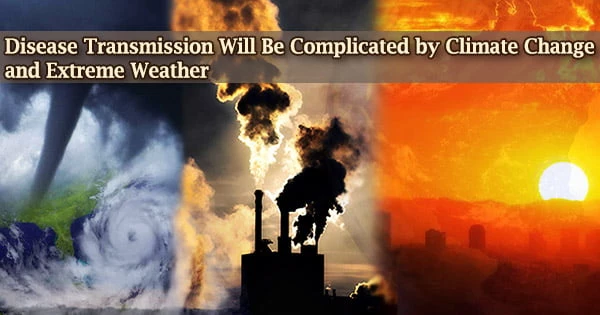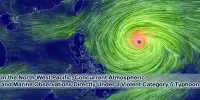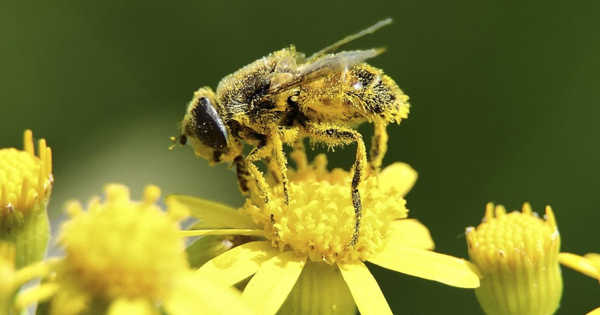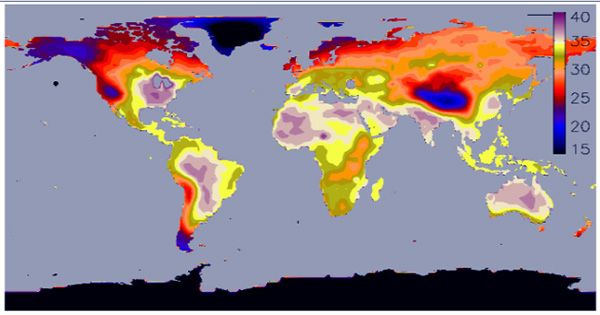According to a study published today (February 15, 2022) in eLife, temperature changes such as heatwaves can have significantly varied effects on infection rates and disease outcomes depending on the typical background temperature.
As global temperatures increase and extreme weather events become more regular, the study shows that predicting the effects of climate change on host-pathogen interactions would become more difficult.
Every country on every continent is affected by climate change. It is wreaking havoc on national economies and harming people’s lives. Weather patterns are shifting, sea levels are increasing, and extreme weather is getting more often.
Human, agricultural, and wildlife populations are all affected by infectious diseases. The interactions between diseases and their hosts are well known to be temperature sensitive.
But how sudden and dramatic temperature variations affect this link, and how this influences overall infection rates and disease consequences, is less well known.
“Climate change is predicted to increase not only average temperatures but also temperature fluctuations and the frequency and intensity of extreme weather events,” explains co-first author Pepijn Luijckx, William C. Campbell Lecturer in Parasite Biology, Trinity College Dublin, Ireland.
“Yet although studies have quantified the effects of rising average temperatures on host and pathogen traits, the influence of variable temperature regimes such as heatwaves remains largely unknown.”
Because greenhouse gases are transparent to sunlight, they allow it to reach the Earth’s surface and heat it. The gases absorb the heat that the Earth produces as infrared radiation, keeping it near the Earth’s surface. As the earth warms, things such as the decrease of sunlight-reflecting snow cover exacerbate global warming.
Climate change is predicted to increase not only average temperatures but also temperature fluctuations and the frequency and intensity of extreme weather events. Yet although studies have quantified the effects of rising average temperatures on host and pathogen traits, the influence of variable temperature regimes such as heatwaves remains largely unknown.
Pepijn Luijckx, William C. Campbell
The effects of varying temperatures on numerous features in a host organism, a small crustacean called Daphnia magna, and its known intestinal parasite, Odospora colligata, were studied by Luijckx and his team. The parasite’s transmission is typical of traditional environmental transmission, as observed in diseases like SARS-CoV-2 and cholera.
The researchers studied how organisms reacted to three different temperature regimes: a constant temperature and two variable regimes with daily temperature swings of +/- 3°C and three-day heatwaves of 6°C above ambient temperature.
The crustacean’s lifetime, fertility, infection status, and the quantity of parasite spores in its intestines were then measured. The data was then entered into a statistical model to compare the effects of the three temperature regimes.
The researchers discovered that daily temperature changes lowered the parasite’s infectivity and spore load when compared to those housed at a steady average temperature. Infectivity of parasites after a heatwave, on the other hand, was nearly identical to that of parasites kept at a steady temperature.
Furthermore, during a three-day ‘heatwave’ when the background constant temperature was 16°C, the quantity of spores in the crustacean host rose, but this load was reduced at higher temperatures.
This shows that temperature change has different impacts depending on the average background temperature and if it is close to the parasite’s optimal temperature.
In the crustacean subjected to parasite spores or when exposed to varying temperatures, host fitness and reproductive success were frequently lowered. The disparity in host and pathogen reactions suggests that parasites were able to resist the abrupt shift in heat better than their hosts in some conditions.
“Our findings show that temperature variation alters the outcome of host-pathogen interactions in complex ways. Not only does temperature variation affect different host and pathogen traits in a distinct way, but the type of variation and the average temperature to which it is applied also matter,” concludes Luijckx.
“This means that changing patterns of climate variation, superimposed on shifts in mean temperatures due to global warming, may have profound and unanticipated effects on disease dynamics.”
Alongside Pepijn Luijckx, the research team includes co-first author Charlotte Kunze (Carl von Ossietzky University of Oldenburg, Germany, and Trinity College Dublin), Andrew Jackson and Ian Donohue (both Trinity College Dublin). Science Foundation Ireland and the Irish Research Council financed their research.
















